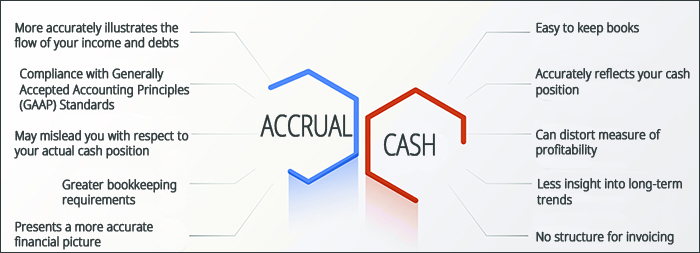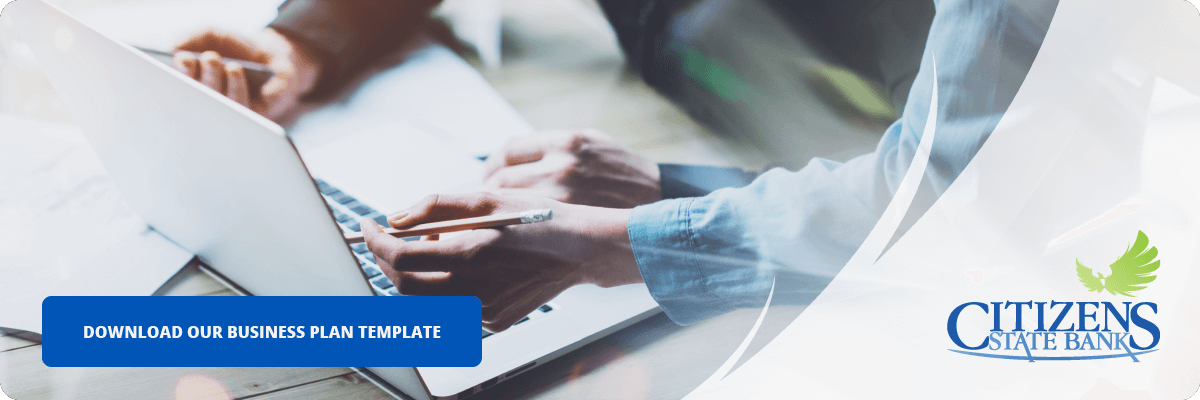Holiday ClosingIn observance of Presidents’ Day, our offices and branches will be closed Monday, February 16. You can access your accounts anytime through Digital Banking.

Proper financial management can make or break a business — a company can’t operate without funds. Managing business finances is far from simple, especially for new startups. These introductory tips on how to manage business finances can help make the task easier for small businesses and set your company up for success.
Setting Up Business Accounts
You absolutely must have a separate bank account for your business income and expenses. Mixing personal and business finances can create issues when trying to determine your profitability, pay taxes, or protect your personal assets. Bankers can be a valuable resource for industry knowledge and experience, so choose carefully.
Budgeting
Creating a budget is the first place to start with your financial management practice and the basis for your balance sheet. Just like a personal budget, a business budget is a list of all expenses, organized by category. A budget will help you track expenses, economize when necessary, plan for large expenditures, and ultimately make a profit.
Establish a Clear Billing System
Your billing system is key to controlling your cash flow, which is the amount of money your business has coming in versus what it’s paying out. The steps involved include:
- Choosing a billing system – will you bill clients manually, use billing software, and if using software, how will you evaluate billing software options?
- Establish your payment terms – you might decide clients must pre-pay you before services are delivered, or have anywhere from 15 – 30 days after product/service delivery to make payment. Whatever payment terms you choose, ensure you communicate them clearly and are consistent in applying them
- Track payments – once you’ve invoiced your clients, it’s just as important to keep track of payments you’ve received and send bill payment reminders if necessary
Choose an Accounting Method
Businesses typically use either the accrual or cash methods of recording revenue and expenses. The main difference is the timing of when revenue and expenses are recognized in the books.
Cash accounting records revenue when money is received and expenses when money is paid out. Accrual accounting records revenue when it is earned and expenses when they are incurred. Cash basis accounting is easier, but accrual accounting provides a more accurate portrait of a company's financial health.
For example, if you make a $200 sale in January and receive payment in February, an accrual method would allow you to record income on January’s books, while the cash method would require that payment to land on February’s books.

Should you get accounting help?
You might decide to keep your own books or use a certified public accountant (CPA), bookkeeper, software, or online service instead. A CPA will typically cost more, but can offer more tailored services for your specific needs. A bookkeeper can provide basic day-to-day functions, but won’t possess the formal accounting education a CPA has. If choosing software or an online service, keep in mind:
- The cost of these services can vary greatly – typically the more features being offered, the more expensive the service.
- The best software or online service is one you will use. Some packages are made for beginners while others are suited for financial professionals – the last thing you want to do is choose a system you can’t use.
- Decide on the features you need. Do you want the system to handle billing and receivables? Integrate with your bank accounts? Handle payroll? Once you have a list of features you’d like to have, prioritize them in order of importance to help narrow your choices.
Your Balance Sheet
As a business owner, it’s essential to closely monitor your company’s income and expenses. (Another reason you must have separate business bank accounts.) A balance sheet helps you understand this relationship and acts as a snapshot of your finances, allowing you to see how profitable you’ve been in the past, providing insights into your current financial standing, and helping you make future cash flow projections.
Cost-Benefit Analysis (CBA)
Your balance sheet is an incredibly powerful tool that, when properly maintained, can help you make important decisions, like whether to apply for a loan or hire a new employee. This is called a cost-benefit analysis, and is a process that helps weigh the strengths and weaknesses of a business decision based on potential financial benefits and costs.
Taxes
One thing that can be easy to forget during day-to-day operations is putting money aside for taxes. If you’ve been in business for a while, you’re probably able to make estimated tax payments fairly accurately, but if you’re just starting out it can be really hard to "guesstimate."
The first thing you should do is talk to the person who will be handling your taxes. Even if you’ve decided to manage the books yourself, talking to a tax professional will pay for itself in the long run. If you look online, you’ll find recommendations from 10% - 40% to put back for paying taxes. Whatever percentage works for you, be sure to put those funds in a separate account devoted solely to paying taxes.
While setting up financial management for your business might be outside your comfort zone, the time you invest getting set up will more than pay for itself over time. Take advantage of the resources available to you – other business owners, your banker, online resources, local business organizations – to set yourself up for success.
The views, information, or opinions expressed in this article are solely those of the author and do not necessarily represent the views of Citizens State Bank and its affiliates, and Citizens State Bank is not responsible for and does not verify the accuracy of any information contained in this article or items hyperlinked within. This is for informational purposes and is no way intended to provide legal advice.

